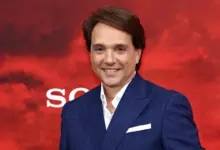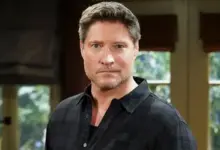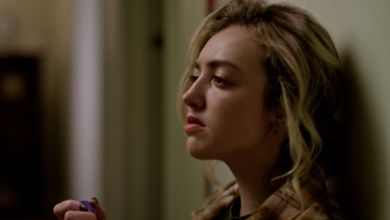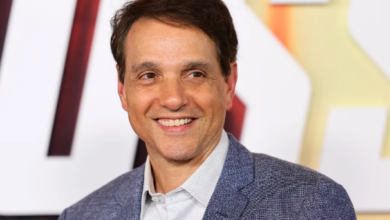Cobra Kai Changes Why Miyagi’s Karate Kid 2 Enemy Calls Him A Coward
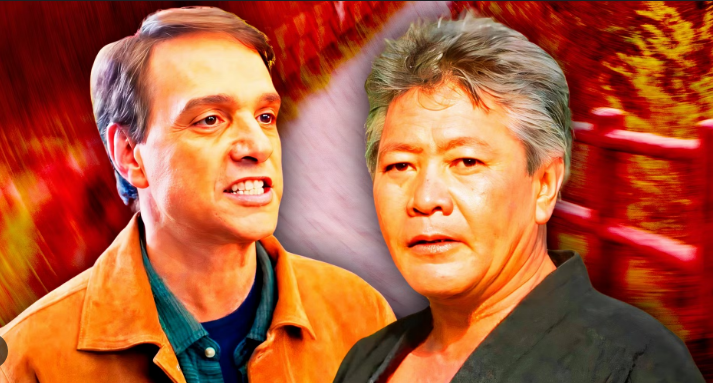
‘This Is Going To Be a Disaster’: Thomas Ian Griffith on Returning in Cobra Kai Season 6
Cobra Kai fans were shocked to see Terry Silver appear in Season 6, Part 2. It seemed like the classic Karate Kid villain had already been dealt with, but instead he returned to menace Daniel LaRusso, Johnny Lawrence and their students at the worst possible time. Yet for the actor who plays him, being in the Netflix show at all was a pleasant surprise.
In an interview with CBR, actor Thomas Ian Griffith talks about his first impression of Cobra Kai as a viewer, before he reprised the role of Terry in Season 4. He also talks about his differing approach to the character on the show as compared to in the movies. And what does he love the most about getting one more opportunity to explore Terry Silver?
You didn’t return until Cobra Kai Season 4, so you saw the show before you were asked to be on it. What did you initially think about this new approach to the Karate Kid characters?
Thomas Ian Griffith: I heard there was a little show that they were doing. I was like, this is going to be a disaster. And then I checked it out and watched the first two YouTube seasons — and I thought it was fantastic. I thought it was wry. it had all the nostalgia. It was funny. It was irreverent. All the things you love. And I was so proud of the creators [Jon Hurwitz, Josh Heald and Hayden Schlossberg] for having a really smart take.
Now, I watched as a fan, never thinking Terry Silver’s going to fit into this world. I did not see that at all. And then when it got picked up by Netflix, the rumors started and people were calling me — oh, you’re going to be in that show. I was like, nah, because I thought it’d be a one-shot deal. And it was such a bigger than life, archetypal character that it really wouldn’t work.
Why would he come back? And then when I spoke to the writers and they had this whole two season [arc] mapped out of the depth and [to] show all these different sides of this character, I was like, this could be really interesting.
Has your perception of Terry changed through the writing of Cobra Kai? Because the whole thrust of the show is that antagonists like John Kreese and Johnny Lawrence aren’t straightforward villains.
I think [when] you label villain, good guy… I think you fall into those cliche traps. Especially when you’re playing someone, you’ve just got to find what can you relate to? What are those good qualities — his loyalty, his commitment to what he believes, the relationship with Kreese, whatever, but the love there. And then the total betrayal that takes him down a completely different path. That’s the beauty of coming back 30 years later.
And also, I think the smartness in the writing, to really do a deep dive into the psychological aspects of Terry. What makes him who he is? Why does he react the way he is? And then you can explain the whole crazy past with the drugs, and this archetypal character. Then we’re going to try to humanize him, but still keep him Terry Silver . That was always the balance — to say you want to deliver on who this guy is underneath.
But it’s based on some truth for him. It’s based on this philosophy of “Strike hard, strike first, no mercy,” but that transfers to life. And that’s why he’s become so successful. When you take a very educated, a well-versed person in the arts and put him into this crazy, make-believe martial arts world, I think you have a dynamic, multi-level character.
Like almost every character on the show, Terry has gone through some big changes across his episodes of Cobra Kai. What have been your favorite parts of his journey to play? Did you expect him to come back after his arrest, or was that also a surprise to you?
I think that’s the joy of it. You come in and then you realize at the end of Season 4, you’ve conquered the world and being on top of the world [is] where Terry should be. And then you slowly watch that Achilles heel that brings him down. That’s always just so much fun to play because however you can bring those human elements, wherever you can bring those human elements, you still see the little flashes of the crazy Terry Silver. And I think we earned that coming back because what you realize is he’s lost everything. — and so that makes him a dangerous character to watch.
I was pretty sure he was going to be in prison. And then you go, what else can he play? But then understanding the finality of this whole series — from the feature films to this TV series — you needed that propulsive villain character to keep that drive to the end. And Terry had a relationship with all three principal [characters]. He was the perfect character to be part of this big finale.
Fans may not know that you have also developed a successful career writing for television. Has that informed the way that you approach Terry Silver as an actor? Or has any of your other acting experience or even life experience come into play?
Absolutely. Being on the other side of it, and getting on the other side of it early, writing action movies and being a part of that, to where I’m writing Virgin River for Netflix right now — that journey, it’s like you realize all the interdisciplinary art forms cross over, writing and acting, and they’re so similar in so many ways. As a writer, I’m playing all those characters. I’m saying if this scene isn’t something [where] those actors are dying to get on set between action and cut to do something special, then I’ve got to cut that scene.
So I think you look at it like that. And then when you read the script, you say hey, if there’s something missing as an actor, what can I bring to that subtextually, or on another level that will just pop and keep something else going? What is that secret that people are going, something’s going on with that dude. It’s making me uncomfortable, but I’ve got to keep watching. That’s always the goal.
As someone who has aged 30 years from first doing that role, there’s so much life that I can lock into. Not that I’m anything like Terry, but again, you want to find those things of just his commitment, his loyalty, his glee in what he does. There are aspects of my own life that I can throw in there. And I think that’s what grounds him and makes him a very appealing character.
Now looking back on the past three seasons, how would you describe your experience with Cobra Kai? Is there anything you can say about how Terry’s journey comes to a close this time?
To be able to be a part of something that’s such a phenomenon, something that is so global — I hadn’t [realized] how successful a show like this is until on a break, my wife and I went to Greece for 10 days and on every small little island, they’re all Cobra Kai fans. And so you go, oh my God, we’re bringing joy and just a quick release to people, to say hey, it’s this goofy, crazy show that I’m going to get caught up in all these emotions and twists and turns. Just to be a part of that, it’s been something real special.
And to come full circle; [ The Karate Kid Part III ] was one of the first films I did. I’m just going, it’s a job and John Alvidsen is directing, and if he says go to this crazy place, I’m going there. I’m fully committing and I’m going to make this the best thing it can be. That was my attitude then, and I think it’s still my attitude with any acting job.
I did my job, I lived something, I enjoyed something, and then you move on. And that’s what I thought it would be. I hadn’t seen Ralph in 30 years and I get the call, I show up on set, and there’s Ralph Macchio. And it’s like, wow, this is bizarre for both of us.
I think the way it ends, Terry Silver serves a very important piece of the big puzzle… We didn’t have the time to really say how he got there, what he was going through to make those decisions. But that’s what you always want as an actor — keep pushing it to say, how can I work that in? In this limited finite period, how can I just bring hints of that? What is it like to say you have terminal cancer, you have lost everything — most importantly, the respect you wanted, you desired and you earned. And when all that’s taken away, that’s a really human feeling that gives you freedom to really do anything.
